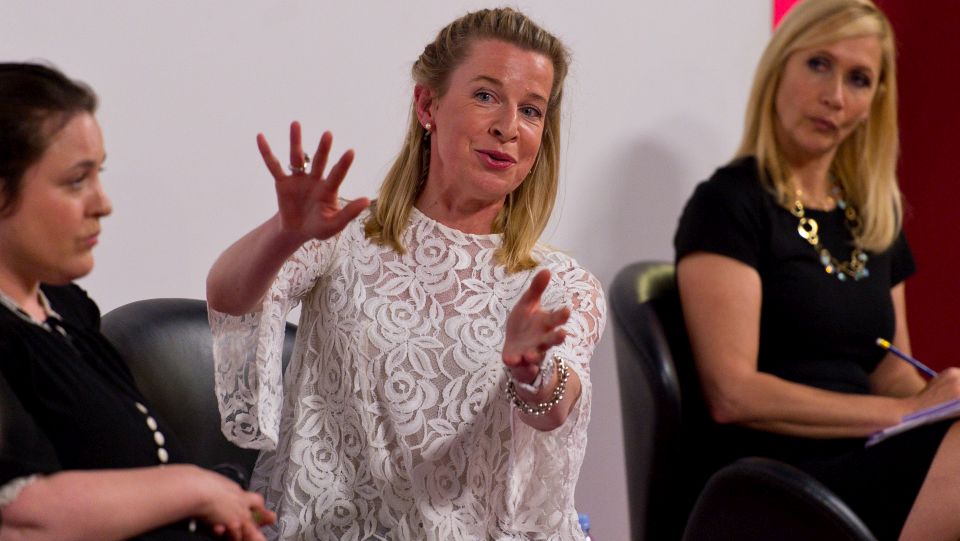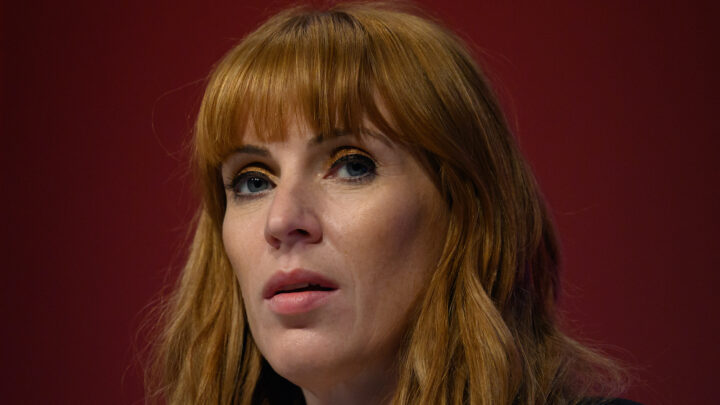Hopkins Hate and the inhumanity of political correctness
The latest Twitterfury with Katie Hopkins exposes the ugliness of PC.

What kind of twisted society would be made more irate by 400 words in a newspaper column than by the deaths of 400 human beings at sea? Our society. Britain in 2015.
When it was reported earlier this week that 400 migrants fleeing poverty and war died in the Mediterranean after their boat from Libya capsized, there was some shaking of heads, sure, and a few handwringing newspaper articles that were shared by a smattering of briefly mournful tweeters. But that was nothing compared with the response to Sun columnist Katie Hopkins’ article about the migrants, in which she said we should send gunships rather than rescue boats to deal with them: that caused the media and Twitter and sections of celebville to go into meltdown. It’s official: we’re now more offended by words than by death. Behold the otherworldliness, even inhumanity, of political correctness, which bristles more at the terms used to describe a horrific event than it does at the event itself.
Hopkins’ article was nasty, yes. Not only did she say she felt nothing for the sort of migrants who find themselves at the mercy of the seas between Africa and Europe — she also described them as ‘cockroaches’ and said they pose a threat to European cities, which are already ‘swamped’ by migrants. Horrible stuff. Nonetheless, a burning question must be asked of the Twitterstorm her piece provoked, in which everyone from Russell Brand to pretty much all Guardian hacks raged against her, accusing her of being a ‘Nazi’, setting up a petition demanding she be dumped by the Sun, and, in some cases, even shopping her to the police. And the question is this: Where was this searing anger, this keyboard-busting fury, when the 400 were reported dead? When, as a direct consequence of the policies of the EU, with its unhinged fear of African and Middle Eastern migrants, these people were actually perishing at sea? If you were made more furious by Hopkins’ article than you were by the deaths themselves, if you tweeted and wailed and petitioned against her but said maybe just an ‘Oh dear’ about the deaths, then it isn’t only Katie who’s fucked up.
What we can see here, clear as day, is the moral turpitude of PC, the warped nature of modern society’s obsession with speech at the expense of everything else, its myopic focus on the appearance of things rather than on things themselves. Ours is an era in which supposed progressives care far more about policing and correcting people’s speech than they do about transforming and improving the real, physical, social world. Left-leaning campaigners devote infinitely more time to keeping an eye on the words politicians and newspapers use to talk about immigrants — insisting that they must ‘change the language’ — than they do to agitating for the dismantling of strict immigration controls. Radical student activists are now wholly concerned with the terms used to describe oppressed people and have nada, zilch, zero to say about how still-existing oppression might be ended.
Ours is a world in which radicals in Australia recently went berserk over PM Tony Abbott’s use of the word ‘lifestyle choice’ to describe the situation of extremely rural Aboriginal communities, yet cannot propose any solution to the depravity of Aboriginal life, the fact that Aborigines are the only people in a Western country who live in Third World conditions. And a world in which, now, numerous people have become obsessed with fixing the problem of Katie Hopkins — via a sacking or censorship or maybe police involvement — yet cannot utter a word about fixing the institutions and policies that caused the deaths of those 400 people she said stupid things about.
What this reveals is that PC is not only censorious, clamouring endlessly for the punishment of those who used wicked or simply wrong terminology — it is also profoundly conservative. It seeks to maintain linguistic order, and in the process pacify public passions, rather than transform the political conditions that cause division, oppression or poverty in the first place. Many on the right foolishly think of PC as some kind of left-wing conspiracy, a case of ‘Cultural Marxists’ overturning institutions and imposing a new, revolutionary rhetoric and outlook. (Where the left is conspiratorially convinced that a ‘neoliberal cabal’ runs the world, the right prefers to fantasise about sects of ‘Cultural Marxists’ conquering our lives.) But this is nonsense. PC is better understood as a kind of social scaffolding, the new form of unforgiving authority that replaced the collapse of traditional values and which now seeks to hold our fraying societies together. It does not seek to overturn the world; rather, it largely accommodates to the world as it exists, inventing new terms and phrases that excuse or, worse, celebrate the already existing divisions of life in the 21st century.
So rather than overturn racism, it rehabilitates it, through progressive-posing talk of the need for increased racial awareness and consciousness. Far from ending the divide between the sexes, it updates it, replacing the Victorian idea of female weakness with new-fangled notions of women’s fair, feminine qualities in contrast with men’s blinkered competitiveness and machismo. And far from challenging the many great problems that still face humanity — from economic sluggishness, to the profound development gap between North and South, to the mass movements of people that are provoked by such harsh realities — it concerns itself far more with how we talk about these things than it does with how we might tackle and end them. Economic slothfulness becomes ‘eco-friendliness’. Slow growth, or rather no growth, in the Third World is re-imagined as ‘sustainable development’. And the PC watch as the mass and great movements of humanity across the globe are stopped or crushed by government forces and they say: ‘Hey, hey! Whatever you do, don’t call those migrants a “flood” or a “swarm”.’ In short, use nice words as you enforce the global order against them. PC is both an apology for division and poverty, and a distraction from meaningful debate about real, proper change.
And now, the immorality of PC, the baseness of it, has led to the surreal situation where a columnist who said horrible things about migrants is grassed up to the police — the same police who play a key role in throwing out of Britain anyone deemed to be an illegal immigrant and in the process contribute to the criminalisation of migration. Worse, the right-on tweeters who fulminated most loudly against Hopkins come from those sections of public life that are most pro-EU, most enamoured with the very political structure whose policies of keeping out any immigrant with dark skin led to those deaths. They probably even mix in circles that include generous smatterings of EU officials and Brussels-based activists.
There you have it, PC summed up: observers rage against a columnist who called migrants from Africa ‘cockroaches’, and then probably logged off from Twitter to have dinner and drinks with the very people whose power, whose clout, whose laws reduce those migrants to the level of cockroaches in the actual world, the real world, the physical world of borders and seas.
Brendan O’Neill is editor of spiked.
Picture by: Getty Images.
To enquire about republishing spiked’s content, a right to reply or to request a correction, please contact the managing editor, Viv Regan.









Comments
Want to join the conversation?
Only spiked supporters and patrons, who donate regularly to us, can comment on our articles.